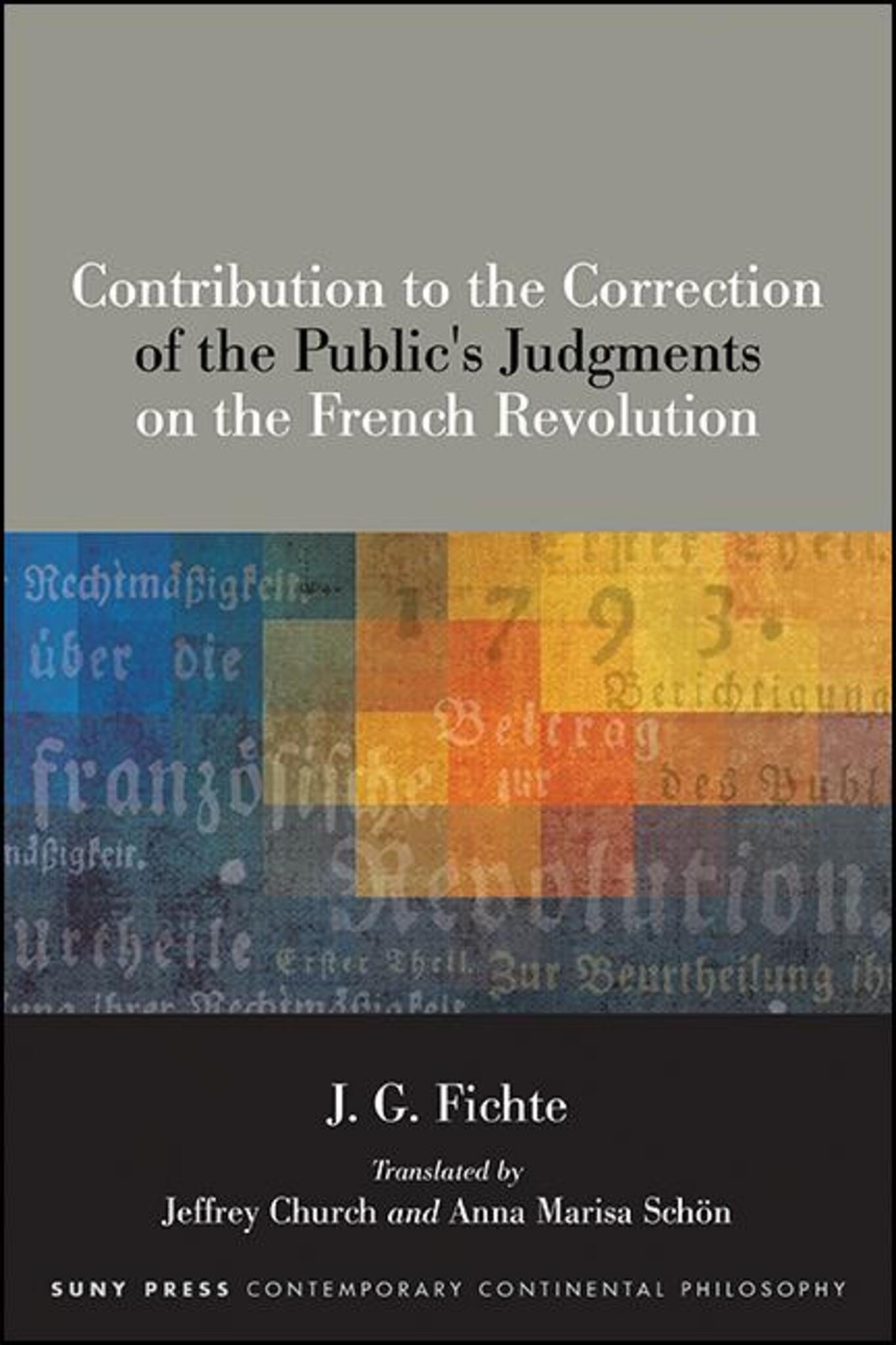We're sorry. An error has occurred
Please cancel or retry.
Contribution to the Correction of the Public's Judgments on the French Revolution

Some error occured while loading the Quick View. Please close the Quick View and try reloading the page.
Couldn't load pickup availability
- Format:
-
02 July 2021

First translation into English of Fichte's major work on the French Revolution.
The reception history of the French Revolution in France and England is well documented among Anglophone scholars; however, the debate over the Revolution in Germany is much less well known. Fichte's Contribution played an important role in this debate. Presented here for the first time in English, Fichte's work provides a distinctive synthesis of Locke's "possessive individualism," Rousseau's general will, and Kant's moral philosophy. This eclectic blend results in an unusual rights theory that at times veers close to a form of anarchism. Written in 1792–93, just before Fichte moved to Jena to develop his philosophical system in a series of works-above all the Wissenschaftslehre of 1794-the Contribution provides invaluable insight into Fichte's early development. In addition, Fichte's work predates much of Kant's political philosophy, and can shed light on the rich dialogue in German political thought in the 1790s.


Introduction
Translators' Note
Chronology
Contribution to the Correction of the Public's Judgments on the French Revolution
Book One: On Judging the Legitimacy of a Revolution
Preface
Introduction
1. Does a People Actually Have the Right to Change Its Constitution?
2. Sketch of the Further Course of the Examination
3. Is the Right to Change the Constitution Alienable through the Contract of All with All?
4. On Privileged Classes in General, in Relation to the Right of Changing the State
5. On the Aristocracy in Particular, in Relation to the Right of Constitutional Change
6. On the Church, in Relation to the Right of Constitutional Change
Afterword
Appendix One: Correspondence
Appendix Two: Review by Friedrich von Gentz
Glossary
Index



